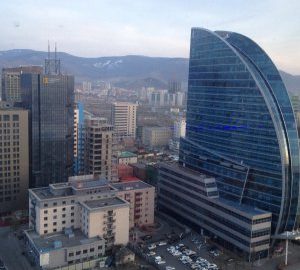During its regular session on March 14, 2024, the Cabinet of Mongolia made a significant step forward in the fight against corruption by supporting the submission of a draft Resolution to the State Great Khural of Mongolia for approval.
The draft Resolution outlines the implementation of an Action Plan for the Implementation of the National Anti-Corruption Program. the Resolution aims to establish an effective legal framework to combat corruption and encourage public trust in government. The newly proposed resolution for implementing the national anti-corruption program is a much-needed initiative to address the misuse of power and authority.
The draft Resolution outlines 290 measures to be implemented between 2023 and 2030, aimed at achieving the 11 goals and 48 objectives of the National Anti-Corruption Program, as set out in 2023 Resolution No. 59 of the State Great Khural. The success of this program hinges on the active participation and cooperation of all stakeholders, including the public and private sectors, civil society organizations, international organizations, the media, and citizens. The anticipated outcomes of this program are promising. A yearly decline in corruption levels is expected under the plan, leading to an expanded state budget, increased public trust in public organizations, rising citizen income, and a strengthened culture of zero tolerance for corruption. Furthermore, a more robust whistle-blowing system will be established, providing a crucial avenue for reporting and addressing corrupt activities.
Official corruption is a pervasive problem in many Asian countries, undermining the rule of law, hindering economic development, and eroding public trust in institutions. Corruption takes various forms, including bribery, embezzlement, nepotism, and cronyism. It affects all levels of government, from local administrations to national agencies, and can influence decision-making in areas such as business regulations, public procurement, and law enforcement.
The consequences of official corruption are far-reaching. It distorts markets, creating an uneven playing field for businesses and discouraging foreign investment. It also undermines the delivery of essential public services, such as education, healthcare, and infrastructure. Corruption can lead to inefficiencies, waste, and misallocation of resources, further exacerbating poverty and inequality. Moreover, it can fuel social unrest and political instability, as citizens become disillusioned with their governments and demand accountability.
The root causes of official corruption in Asian countries are complex and multifaceted. Some of the key factors include weak institutions, lack of transparency and accountability, and cultural norms that tolerate or even encourage corrupt behavior. In many cases, low salaries and inadequate resources for public officials create incentives for them to engage in corrupt activities. Additionally, complex regulatory systems and opaque decision-making processes can create opportunities for corruption to thrive.

